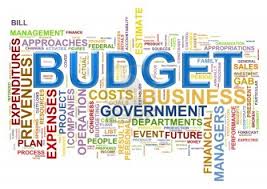South Africa’s troubled economy can achieve growth despite a projected deficit expenditure of R1.95 trillion (about US$128.4 billion) against a revenue of R1.58 trillion in the 2020/2021 financial year, Finance Minister Tito Mboweni said on Wednesday.
In spite of these harsh economic realities, what was needed was to build a sound macroeconomic framework to lay the foundation for the needed growth, Mboweni said as he delivered his 2020 budget statement in Parliament in Cape Town.
“Our economy has won before, and it will win again,” Mboweni said.
Against this backdrop, “we forecast that the South African economy will grow by 0.9 percent and inflation will average 4.5 percent in 2020,” Mboweni said.
This was in contrast “with growth of 3.5 percent forecast for sub-Saharan Africa – the second fastest growing region in the world.”
“Budgets are complex, but the numbers are simple. And the numbers show that we have work to do,” the minister told the full House, which included President Cyril Ramaphosa and his cabinet.
According to him, the projected R1.58 trillion revenue is 29.2 per cent of GDP, while the projected expenditure at R1.95 trillion is some 36 percent of Gross Domestic Product (GDP).
“This means a consolidated budget deficit of R370.5 billion, or 6.8 percent of GDP in 2020/21,” Mboweni said.
Gross national debt was projected to be R3.56 trillion, or 65.6 percent of GDP by the end of the 2020/21 financial year, he added.
The minister proposed no major tax increases to support the growth, as he disclosed that “there is some real personal income tax relief.”
He acknowledged that persistent electricity problems would, however, hold back growth.
“Over the next three years, we expect growth to average just over 1 percent. Therefore, a stable supply of electricity will be our number one task,” Mboweni said.
NM/jn/APA


